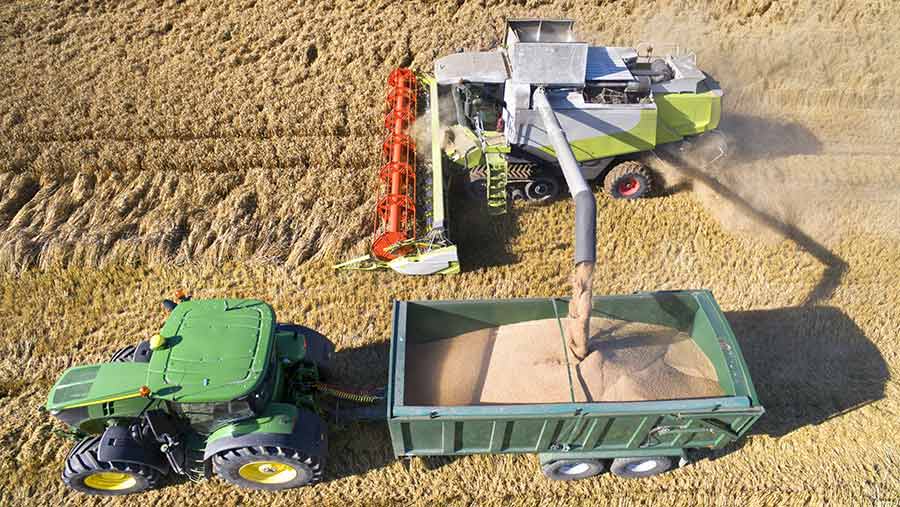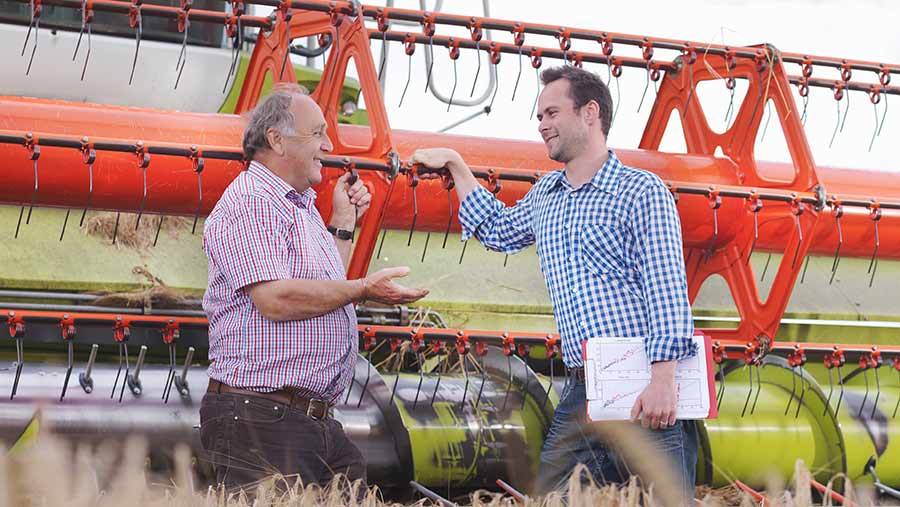5 ways to find good staff at harvest
It is the age-old question – how do you find quality people to work for you during the manic harvest season?
Andrew Pendry is director of farming at Burden Bros’, a Kent-based contract farming business managing 1,250ha of arable land, working with nine different landowners.
After years of difficulty sourcing good summer staff, Mr Pendry says the business has cracked how to find good recruits.
See also: 4 growers share their experiences of controlled traffic farming
Coming from a family farm in Norfolk, James Trett also knows how tricky it can be to get reliable people to work for you as part of a well-oiled harvest team.
Mr Trett is managing director of JP Trett, an agricultural recruitment agency, which helps clients find and hire people across the agriculture and rural business sectors.
1. Agricultural colleges

© Rex/Shutterstock
It is no secret that agricultural students are a prime source of willing, flexible workers available for the summer months.
Ag-students are hungry for experience, but Mr Pendry says growers need to build a rapport with their local agricultural college first.
About eight years ago Burden Bros’ began forging a relationship with the Greenmount farming campus of Northern Ireland’s College of Agriculture, Food and Rural Enterprise.
“We have been very lucky with going down the college route.
“We started sourcing summer workers from the college and for the past three years we’ve been going to an open day to do presentations.
“We talk to the students about who we are and what we are looking for.
“Last year of the 28 students on the course, 22 applied for summer work with us which is great.”
Now Burden Bros’ has a solid relationship with the college and its lecturers, who will suggest suitable candidates to Mr Pendry.
2. Promote your business

©Juice/Rex/Shutterstock
Making your business known might seem like an obvious point when trying to attract high-quality people to work for you, but growers sometimes fail to promote themselves enough or in the right ways.
Mr Trett says a key way of getting your message across to large crowds of potential recruits is to harness the power of social media.
“We use LinkedIn, Facebook, Twitter and Instagram to attract people and generate a draw to job vacancies and this really helps find suitable candidates,” he explains.
Social media is a free, quick and easy way of spreading the word about harvest staff vacancies.
However, Mr Trett says the likes of Twitter, Facebook and Instagram should be used for more than just basic e-advertising if growers want to receive applications from top candidates.
“Take photos of your kit, the scenery, the farm and the lifestyle and use this to attract attention on social media.
“It all helps to reach the students and young people who will be looking for harvest work.”
Mr Pendry agrees, adding growers need to get would-be workers excited about applying to work for them.
“Highlight what you are looking for but also what you can offer them – you do have to invest the time if you want high-quality guys to apply to work for you,” he says.
3. Go global

© Design Pics Inc/REX Shutterstock
If local talent is in short supply or your farm is nowhere near an agricultural college, Mr Trett says growers should not ignore the massive pool of overseas recruits who are vying for places on UK farms.
Heading up a recruitment agency specialised in finding skilled operators of tractors, combines and sprayers from all over the world, Mr Trett says there is global competition for harvest work.
“Just chucking an advert for harvest work in the local paper isn’t going to do much for you.”
“There is a big supply and demand for English speaking operators from countries such as Australia, New Zealand, Canada and America to come and work in the UK at harvest.”
4. Work with neighbouring farms

© Cultura/Rex/Shutterstock
If you are a one-man operation for most of the year and the thought of sacrificing hours to encourage students to work for you is not appealing, consider combining your efforts with neighbouring farms who may be struggling too.
“It’s always good to speak to your neighbours to find out what they are doing to find harvest staff,” says Mr Trett.
5. Don’t leave it too late

© Antti Aimo Koivisto/REX/Shutterstock
Mr Pendry says it is important to not leave your harvest worker hunting to the last minute and advises getting prepared in the spring by finding out when local agricultural colleges are holding open days or job fairs.
“You really don’t want to leave it too late. We go to [the college] in February because that’s when they hold their open days.”

